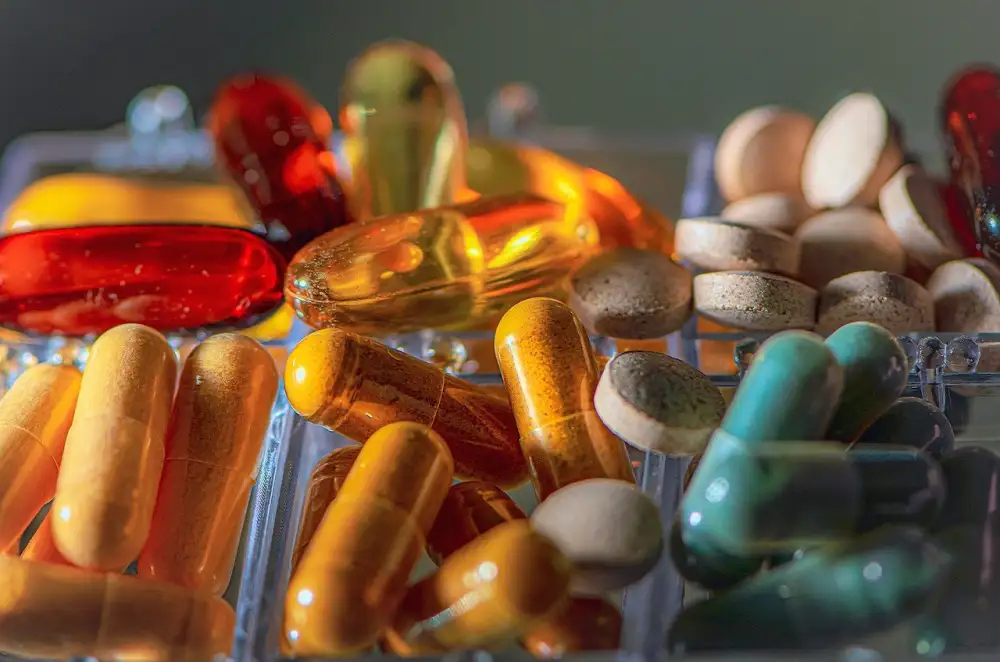Unlocking the Top Health Benefits of Glutamine: A Comprehensive Guide

Glutamine is the most abundant amino acid in the body and plays a crucial role in various physiological functions. It is considered a conditionally essential amino acid, meaning that under certain circumstances, such as intense physical activity or illness, the body may require more glutamine than it can produce. This amino acid is found in foods like meat, fish, dairy products, and certain plant-based sources. Glutamine is known for its ability to support immune function, aid in muscle recovery, and promote gut health.
Boosts Immune System
Glutamine plays a vital role in supporting the immune system. It is a primary fuel source for immune cells, such as white blood cells and macrophages, helping them function optimally to fight off infections and illnesses. Research has shown that glutamine supplementation can enhance the body's ability to produce antibodies, which are essential for immune response. Additionally, glutamine helps maintain the integrity of the intestinal barrier, preventing harmful pathogens from entering the bloodstream and triggering an immune response. Incorporating glutamine-rich foods like poultry, fish, dairy products, beans, and nuts into your diet can help boost your immune system naturally.
Supports Muscle Growth and Recovery
Glutamine plays a crucial role in supporting muscle growth and aiding in post-exercise recovery. As the most abundant amino acid in the body, it is essential for protein synthesis, which is vital for muscle repair and growth. During intense workouts, glutamine levels can deplete rapidly, leading to muscle fatigue and decreased performance. Supplementing with glutamine can help replenish these levels, speeding up recovery time and promoting muscle growth. Studies have shown that glutamine supplementation can reduce muscle soreness and improve overall athletic performance, making it a valuable asset for those looking to enhance their fitness goals.
Improves Gut Health
Glutamine plays a crucial role in improving gut health by supporting the integrity of the intestinal lining. It helps in maintaining the barrier function of the gut, preventing harmful substances from leaking into the bloodstream and causing inflammation. Glutamine is a preferred fuel source for the cells lining the intestines, aiding in their growth and repair. This amino acid also supports the production of mucin, a protective layer that lines the digestive tract, further enhancing gut health and promoting proper digestion and absorption of nutrients.
Enhances Athletic Performance
**Enhances Athletic Performance**
Glutamine plays a crucial role in enhancing athletic performance by aiding in muscle recovery and reducing muscle breakdown during intense physical activity. Studies have shown that supplementing with glutamine can help improve endurance, reduce fatigue, and support overall athletic performance. Additionally, glutamine helps maintain optimal hydration levels in the body, which is essential for peak performance during workouts or competitions. Athletes looking to maximize their training results can benefit from incorporating glutamine into their nutrition regimen to support their performance goals.
Aids in Weight Management
Glutamine plays a crucial role in weight management by supporting muscle growth and reducing fat storage. Research suggests that glutamine helps maintain muscle mass while promoting fat loss, making it an essential supplement for those looking to manage their weight effectively. Additionally, glutamine can help regulate blood sugar levels and reduce cravings for unhealthy foods, further aiding in weight management efforts. Incorporating glutamine-rich foods or supplements into your diet can be beneficial for maintaining a healthy weight and achieving your fitness goals.
Reduces Muscle Soreness
Glutamine plays a crucial role in reducing muscle soreness after intense physical activity. During exercise, glutamine levels in the body can become depleted, leading to muscle fatigue and soreness. Supplementing with glutamine post-workout has been shown to help decrease muscle soreness and speed up recovery time. This is especially beneficial for athletes and individuals engaging in high-intensity training programs. By reducing muscle soreness, glutamine enables individuals to recover faster and get back to their training routine sooner, ultimately improving overall performance and results.
Promotes Wound Healing
Glutamine plays a crucial role in promoting wound healing. It is considered a conditionally essential amino acid, meaning that during times of stress or injury, the body's demand for glutamine increases significantly. Glutamine aids in collagen production, which is essential for skin regeneration and wound repair. Additionally, it helps support the immune system, reducing the risk of infection at the wound site. Including glutamine-rich foods in your diet or taking supplements can help speed up the healing process for wounds and injuries.
Potential Benefits for Cancer Patients
**Potential Benefits for Cancer Patients**
Glutamine has shown promise in supporting cancer patients undergoing treatment. Research suggests that glutamine may help reduce the side effects of chemotherapy and radiation therapy, such as mucositis and neuropathy. It can also aid in maintaining muscle mass, which is often compromised during cancer treatment. Additionally, glutamine may play a role in supporting immune function, which is crucial for cancer patients. While more studies are needed to fully understand the impact of glutamine on cancer care, its potential benefits make it a promising avenue for further exploration in oncology.
In conclusion, glutamine is a versatile amino acid with numerous health benefits. From boosting the immune system and supporting muscle growth to improving gut health and aiding in weight management, its impact on overall well-being is significant. For those looking to enhance athletic performance, reduce muscle soreness, promote wound healing, or even support cancer patients during treatment, incorporating glutamine-rich foods or supplements into their diet may be beneficial. However, it's essential to consult with a healthcare provider before making any significant dietary changes. Opting for natural sources of glutamine like poultry, fish, dairy products, beans, and leafy greens is recommended for a balanced approach to reaping the benefits of this essential nutrient.
Published: 03. 05. 2024
Category: Health



